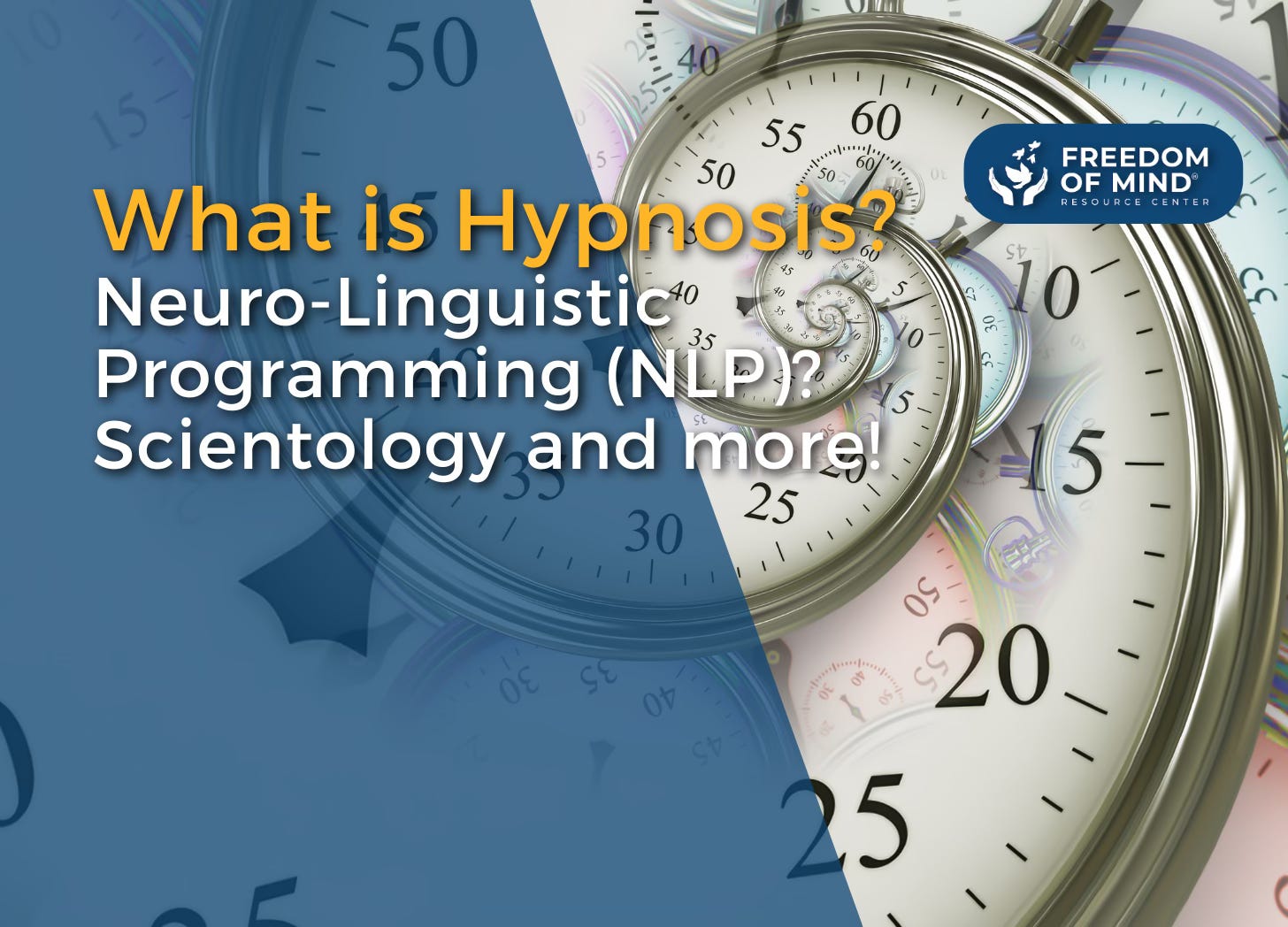What is Hypnosis? Neuro-Linguistic Programming (NLP)? Scientology and more!
With Jon Atack
In the past months, I have been working with law professor emeritus Alan Scheflin on two chapters on “The Dark Side of Hypnosis” for a forthcoming International Handbook of Clinical Hypnosis. I decided to use Hubbard and Scientology as an exemplar of cult mind control. Naturally, I went to the world authority on Hubbard and his cult, my colleague and dear friend, Jon Atack. Scheflin focused on one chapter on the U.S. government mind control program MKUltra and George Estabrooks. I focused on authoritarian cult leaders like Ron Hubbard of Scientology infamy and others. For anyone interested in Scientology or the topic of cults, I recommend Atack’s paper Never Believe a Hypnotist. It is of interest that Hubbard used those very words. Hubbard was, in fact, a hypnotist.
Keep reading with a 7-day free trial
Subscribe to Cults, Culture & Coercion with Dr. Steve Hassan to keep reading this post and get 7 days of free access to the full post archives.



